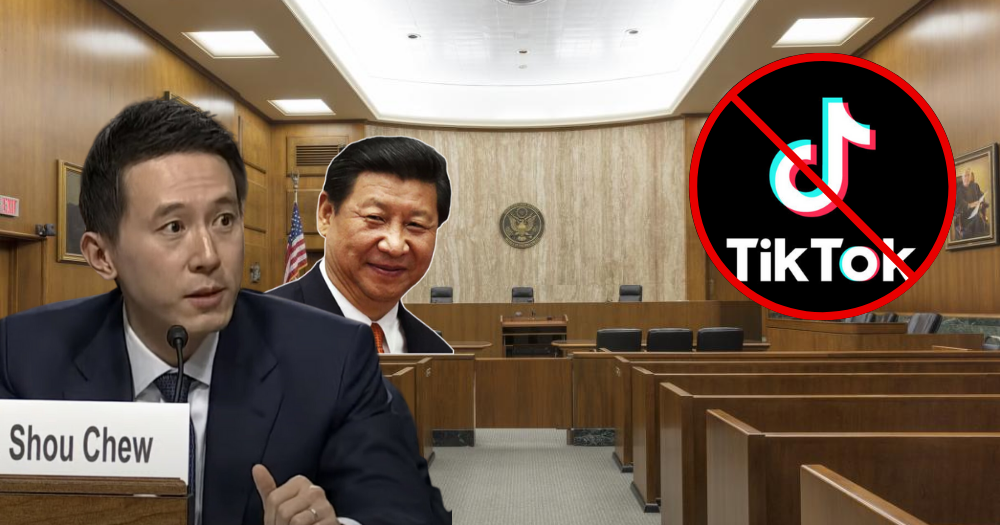TikTok Inc., the California-incorporated company that provides TikTok in the United States, has kept to its word that it would challenge the Foreign Adversary Controlled Applications Act (PAFACA) in court.
Together with its parent company ByteDance, TikTok Inc. filed a lawsuit in the U.S. Court of Appeals for the District of Columbia Circuit on May 7 (Washington D.C. time), reported Reuters.
The companies argued that the act, which was signed into law by U.S. President Joe Biden on Apr. 24, is "unconstitutional" as divesting from TikTok is "simply not possible".
The act states that TikTok will "face a ban" across the U.S. if China-based ByteDance does not sell it off to a company that is not headquartered in a country that the U.S. considers a foreign adversary.
The act gives ByteDance until Jan. 19, 2025, to do so, but the deadline can be extended by 90 days if the authorities are satisfied that a possible sale is ongoing.
If there is no sale, U.S.-based providers will stop making the app accessible for new customers, but those who have already downloaded the app can continue to use it.
Divestment 'unfeasible'
In their lawsuit, TikTok Inc. and ByteDance first argued it is "not commercially, technologically, or legally feasible" to comply with the act's divestiture requirement, especially not within the timeline.
On the commercial front, the companies said the divestment would sever the U.S. TikTok platform's operational relationship with the remainder of the global platform, thereby preventing international content from becoming "seamlessly available" in the U.S. market and vice versa.
Such a limited pool of content would "dramatically undermine the value and viability" of the U.S. TikTok business.
Similarly, the companies argued that it is technologically impossible to move "millions of lines of software codes" to a non-existent, alternative team of engineers.
Besides taking "years" for the new team to gain sufficient familiarity with the code to perform the "ongoing, necessary maintenance, and development activities" for TikTok, they would also need to access ByteDance software tools to keep the platform functioning, which the Act prohibits.
Chinese government forbids divestment
TikTok Inc. and ByteDance also highlighted that any sale of TikTok's recommendation algorithms, which allowed TikTok to create "a unique style and community", would require a license from the Chinese government under China's export control rules.
However, the Chinese Foreign Ministry has stated previously that it firmly opposed the "forced sale" of TikTok.
As such, to sever TikTok's operations in the U.S. from ByteDance would mean removing TikTok's access to its recommendation engine which helped the platform gain its popularity today.
TikTok ban 'unconstitutional'
Due to what it claims is the inevitability of a ban, TikTok Inc. and ByteDance contended that the act is "unconstitutional".
One reason the companies put forward is that the Act will restrict TikTok Inc.'s First Amendment rights to free speech, as it eliminates the company's ability to "speak through its editorial and publishing activities and through its own account on the TikTok platform".
The companies also disputed the argument that the "national security risks associated with TikTok" outweighed the rights to free speech of TikTok and its 170 million American users.
"The Act does not articulate any threat posed by TikTok nor explain why TikTok should be excluded from evaluation under the standards Congress concurrently imposed on every other platform.
Even the statements by individual members of Congress and a congressional committee report merely indicate concern about the hypothetical possibility that TikTok could be misused in the future, without citing specific evidence.
Those speculative concerns fall far short of what is required when First Amendment rights are at stake."
Cool, so what now?
For now, TikTok can continue to operate in the U.S., but what happens next for its lawsuit is less clear.
According to NBC News, one factor that may determine what is next is whether the D.C. Circuit Court would agree to hear TikTok and ByteDance's case on an expedited timeframe, delivering a completed opinion before the divestment deadline.
A faculty of the University of Pennsylvania Carey Law School said the companies would likely request a stay of the law or a preliminary injunction with the court, thereby "putting the law on hold until a decision is reached".
Another law professor at Cornell Law School believed there is "a real possibility" that the case will be escalated to the US Supreme Court regardless of what happens in the circuit court, as resolving it will not be easy.
Related stories
Top images via Library of Congress & X

If you like what you read, follow us on Facebook, Instagram, Twitter and Telegram to get the latest updates.



